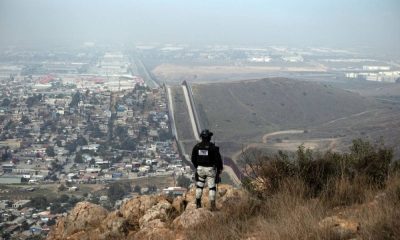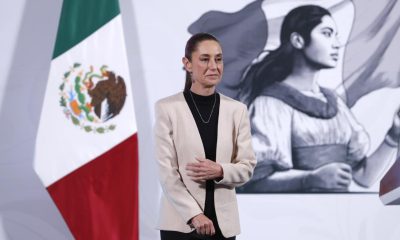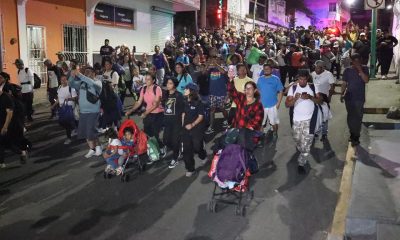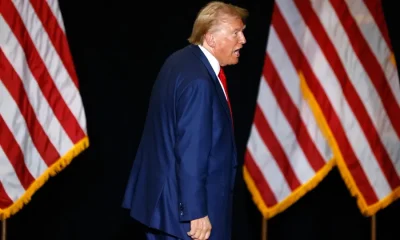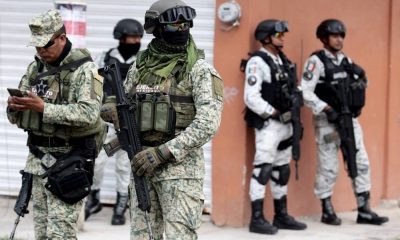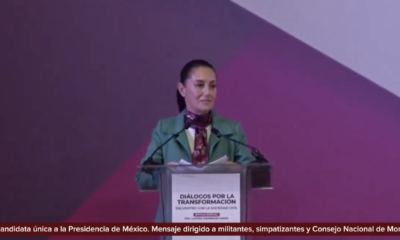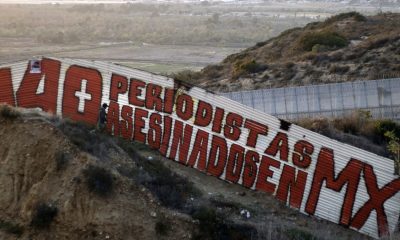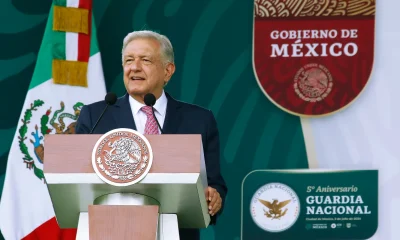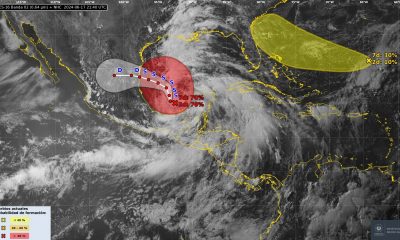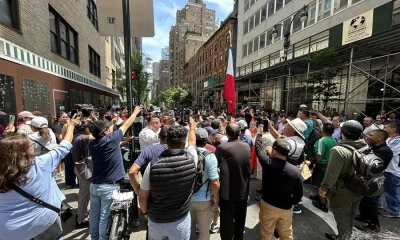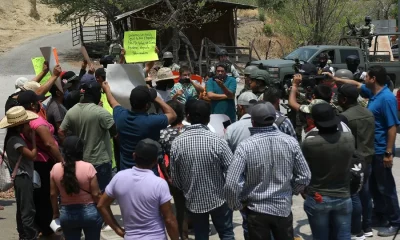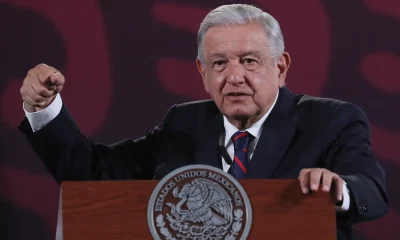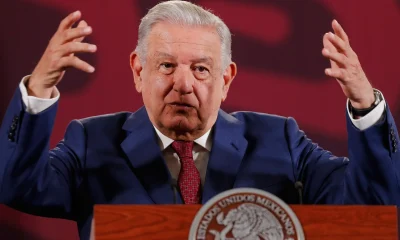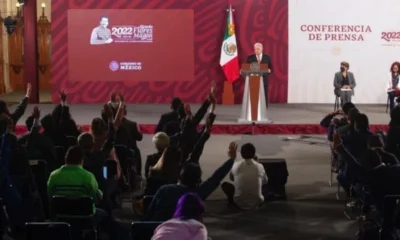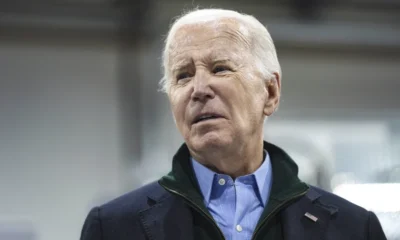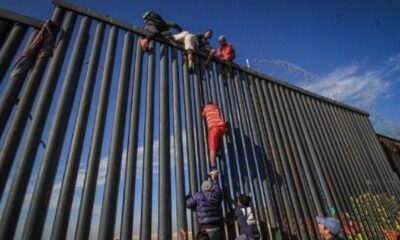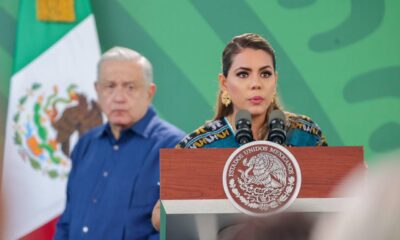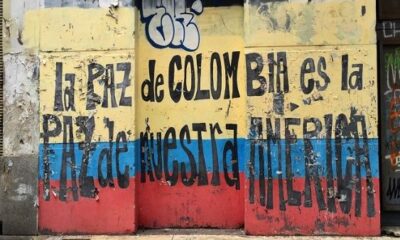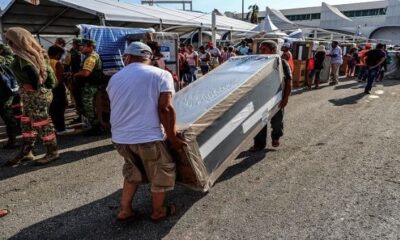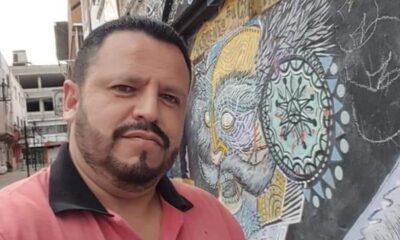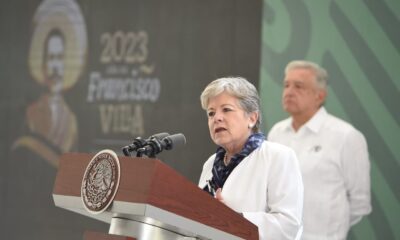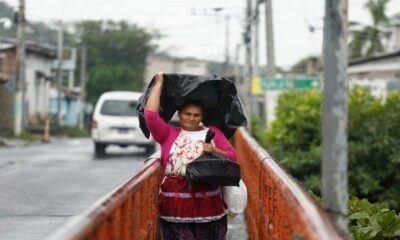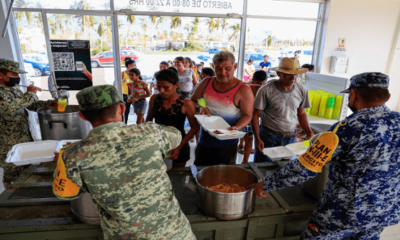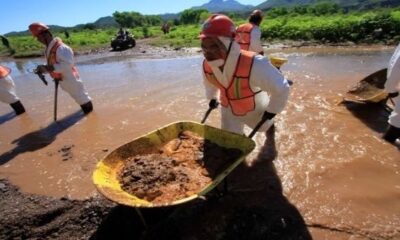International
Mexico gives $110 a month to Venezuelans deported in the face of an agreement with Maduro
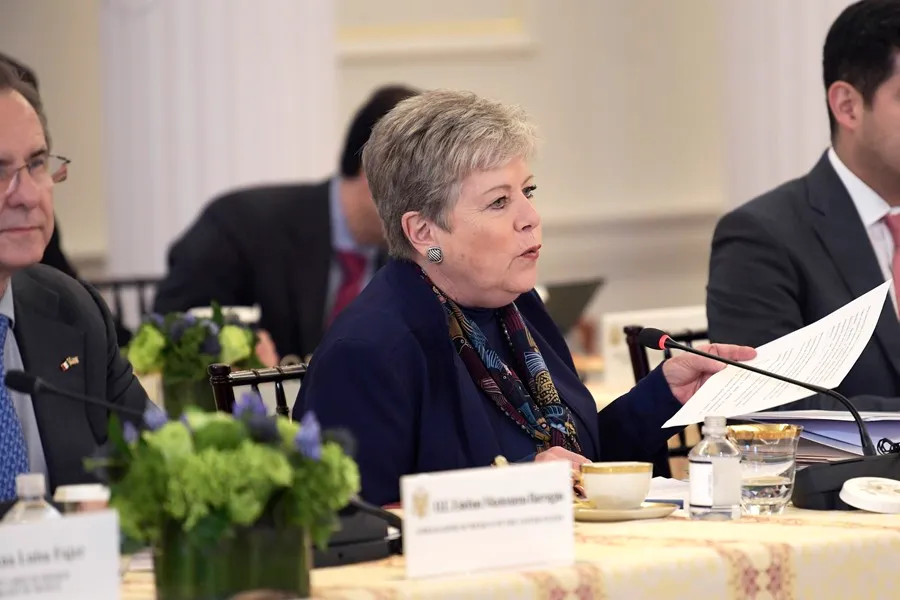
The Mexican Government grants 110 dollars a month for six months to Venezuelan migrants returned to their country under social programs before an agreement signed with President Nicolás Maduro, as revealed on Thursday by Mexican Foreign Minister Alicia Bárcena.
“It is very important, we have just signed an agreement with Venezuela, with the president, Nicolás Maduro, which is called ‘Return to the Homeland’. We are sending Venezuelans back to their country because we really can’t with these amounts,” Bárcena said at the morning government conference.
The Secretary of Foreign Affairs mentioned that the Mexican president, Andrés Manuel López Obrador, “has instructed that every migrant” returned to Venezuela “have a support like the one given here” in Mexico, from the Young People Building the Future programs, of professional apprentices, and Sembrando Vida, for peasants.
“So we already have an amount that we are already giving to the migrants who return to Venezuela, we actually give them a card, so that they can join a program,” he said.
The Ministry of Foreign Affairs had already announced in December the resumption of the repatriations of Venezuelans in Mexico with support under these Mexican programs linked to ‘Vuelta a la patria’.
But now, Bárcena detailed that there are agreements with the Venezuelan Companies Polar and Petróleos de Venezuela (PDVSA), as well as Mexican companies in that country, such as Bimbo and Femsa, to accome returned migrants as apprentices.
“We give them six months of a stipend, it is more or less than 110 dollars a month, which is wonderful for them, and then there is an incentive for them to return, we have already managed to repatriate a very significant amount of Venezuelans,” described the diplomat.
The agreement occurs in the face of the growth of irregular migration through Mexico, which rose by 77.2% in 2023 to exceed 782,000 people, of which the main country of origin was Venezuela, with almost 223,000, an annual increase of 131.81%, according to the statistics of the Government’s Migration Policy Unit.
“We have relations with all governments and in this we try to have cooperation because everyone passes through our territory,” López Obrador defended.
Central America
Senator Van Hollen Meets with Deported MS-13 Member in El Salvador; Trump and Bukele React

U.S. Democratic Senator Chris Van Hollen, representing the state of Maryland, held a meeting in El Salvador with deported MS-13 gang member Kilmar Ábrego García, a member of the criminal group classified by the U.S. government as a terrorist organization.
“Kilmar Ábrego García, miraculously resurrected from the ‘extermination camps’ and ‘torture chambers,’ now sipping margaritas with Senator Van Hollen in the tropical paradise of El Salvador!” wrote President Nayib Bukeleon X (formerly Twitter), sharing photos of Van Hollen, Ábrego García, and a lawyer sitting together at a Salvadoran hotel.
The deported gang member is seen wearing a plaid shirt and a flat-brimmed cap, seated at a table with glasses and coffee cups. The senator also shared images of the meeting on his own social media accounts.
Bukele reaffirmed that Ábrego will remain in El Salvador and will not be returned to the United States.
“Now that his health has been confirmed, he has earned the honor of remaining under the custody of El Salvador,” Bukele added.
Former U.S. President Donald Trump criticized the senator’s meeting with Ábrego on Truth Social, calling Van Hollen “a fool” for advocating for Ábrego’s return to the U.S.
International
Pope Francis Appears for Easter Blessing, Calls for Peace and Religious Freedom

Pope Francis, still recovering from pneumonia, appeared on the balcony of St. Peter’s Basilica in the Vatican on Easter Sunday and, with a faint voice, wished a “Happy Easter” to the thousands of faithful gathered to celebrate the Resurrection of Christ.
A month after being discharged from a lengthy hospital stay, the presence of the 88-year-old pontiff had remained uncertain, with the Vatican not confirming his attendance ahead of time.
Eventually, the pope made a brief appearance in a wheelchair shortly after 12:00 p.m. (10:00 GMT) to deliver his traditional “Urbi et Orbi” blessing (“to the city and to the world”).
Although no longer wearing an oxygen cannula, the Argentine Jesuit relied on a close aide to read his Easter message, which touched on major global conflicts.
Francis condemned the “dramatic and unworthy humanitarian crisis” in Gaza and called for a ceasefire, while also expressing concern over the “growing climate of antisemitism spreading across the globe.”
He further emphasized the importance of religious freedom and freedom of thought, stating that without mutual respect, “peace is not possible.”
International
Thousands rally nationwide against Trump’s threat to U.S. democracy

Thousands of protesters gathered on Saturday (April 19, 2025) in major cities like New York and Washington, as well as in small communities across the United States, in a second wave of demonstrations against President Donald Trump. The crowds denounced what they view as growing threats to the country’s democratic ideals.
In New York City, demonstrators of all ages rallied in front of the Public Library near Trump Tower, holding signs accusing the president of undermining democratic institutions and judicial independence.
Many protesters also criticized Trump’s hardline immigration policies, including mass deportations and raids targeting undocumented migrants.
“Democracy is in grave danger,” said Kathy Valyi, 73, the daughter of Holocaust survivors. She told AFP that the stories her parents shared about Adolf Hitler’s rise to power in 1930s Germany “are happening here now.”
In Washington, demonstrators voiced concern over what they see as Trump’s disregard for long-standing constitutional norms, such as the right to due process.
-

 International4 days ago
International4 days agoArsenal stun Real Madrid at the Bernabéu to reach Champions League semifinals
-

 Central America3 days ago
Central America3 days agoNicaraguan Exiles to Mark 7th Anniversary of 2018 Protests with Global Commemorations
-

 International3 days ago
International3 days agoDominican ‘False Hero’ Arrested for Faking Role in Nightclub Collapse That Killed 231
-

 International4 days ago
International4 days agoBogotá residents line up for yellow fever vaccine amid national alert
-

 International2 days ago
International2 days agoACLU seeks emergency court order to stop venezuelan deportations under Wartime Law
-

 International4 days ago
International4 days agoDeSantis’ immigration crackdown sparks alarm in Venezuelan Communities in Doral
-

 Central America2 days ago
Central America2 days agoUN complaint filed against Costa Rica over detention of migrant children
-

 International4 days ago
International4 days agoMexico refuses to restore ties with Ecuador while Noboa remains in office
-

 International18 hours ago
International18 hours agoThousands rally nationwide against Trump’s threat to U.S. democracy
-

 Central America33 mins ago
Central America33 mins agoSenator Van Hollen Meets with Deported MS-13 Member in El Salvador; Trump and Bukele React
-

 International35 mins ago
International35 mins agoPope Francis Appears for Easter Blessing, Calls for Peace and Religious Freedom














